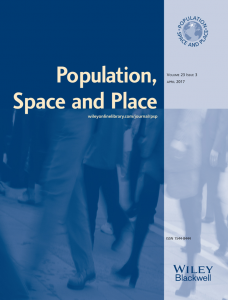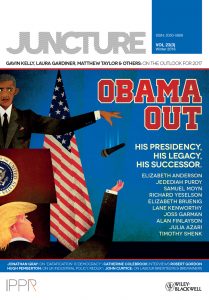The Division of Society into Two Classes Transforms into the Sexual Differentiation of Space
(Source: http://commons.wikimedia.org/wiki/Category:Marxism#/media/File:Flickr_-_NewsPhoto!_-_Marxisme_festival_Amsterdam.jpg) The economist Karl Marx believed for society to change, there was a need for an uprising, and an overthrowing of the ruling class; the bourgeoisie. To Marx, no person would truly be free unless this rebellion would occur. Marx is known for his theories about the economy, workers, and social life. One concept, of his, that appeals to my attention is the division of society into two classes. However, what Marx failed to realize, was by this division, he,...






1475-682X/asset/akdkey.jpg?v=1&s=eef6c6a27a6d15977bc8f9cc0c7bc7fbe54a32de)
